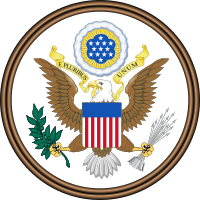Communications Act of 1934

The Communications Act of 1934 is a big set of rules that the government made a long time ago to help regulate things like phones, radio, TV, and other ways people talk to each other. It's kind of like a game with rules that everyone has to follow so everyone can play fairly.
So let's say you have a phone and you want to call someone. You can't just call anyone you want whenever you want. You have to follow some rules that say what you can and can't do. For example, you can't say mean things to someone on the phone, and you can't use the phone to do something illegal.
The same kind of rules apply to other ways people talk to each other, like radio and TV. The government wants to make sure that everyone who wants to talk on the radio or TV has a fair chance to do so. That way, you get to hear from lots of different people and ideas, not just one or two really loud people.
The Communications Act of 1934 also helps make sure that everyone in the United States can get access to phone, radio, and TV services, no matter where they live or how much money they have. This is important because it means everyone can learn new things, stay connected with loved ones, and have access to help if they need it.
So let's say you have a phone and you want to call someone. You can't just call anyone you want whenever you want. You have to follow some rules that say what you can and can't do. For example, you can't say mean things to someone on the phone, and you can't use the phone to do something illegal.
The same kind of rules apply to other ways people talk to each other, like radio and TV. The government wants to make sure that everyone who wants to talk on the radio or TV has a fair chance to do so. That way, you get to hear from lots of different people and ideas, not just one or two really loud people.
The Communications Act of 1934 also helps make sure that everyone in the United States can get access to phone, radio, and TV services, no matter where they live or how much money they have. This is important because it means everyone can learn new things, stay connected with loved ones, and have access to help if they need it.
Related topics others have asked about:
